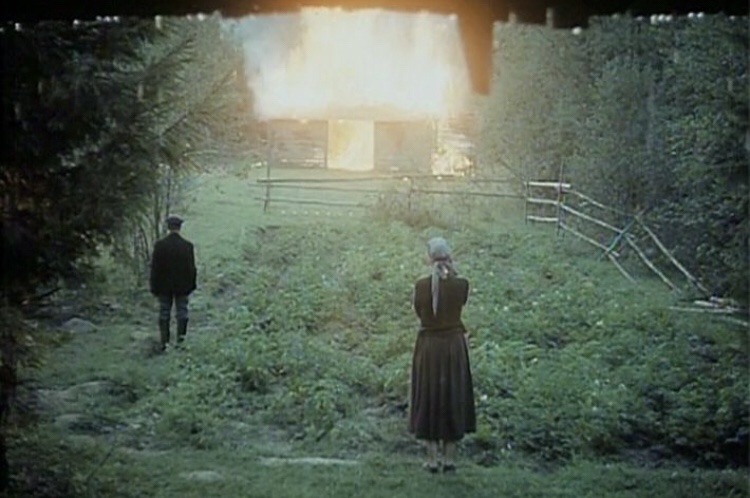With the Coronavirus keeping us all on lockdown, I am assuming many of you are looking for things to watch during these times of social distancing and quarantine. The Latrine Stream Series will be focusing on either a film or group of films each day. Look at this series as a break in between rewatching “The Office” and “Friends”. A majority of the films touched on in the series can be found on the Criterion Channel.

Although I am currently working on a Andrei Tarkovsky retrospective piece, I felt the best place to start this new series would be worth the directors fourth film “Mirror”. Released after his international hit “Solaris” Tarkovsky took a more autobiographical approach with his next film. “Mirror” is the definition of “pure cinema” relying less on conventional narrative, forcing the viewer to let the images wash over you, putting the viewer in a contemplative state.
The film is made up of dreams and memories of an unseen man. Just like how dreams and memories are sort of just images in our mind, the film is presented in a similar way. We see a short scene of the man’s grandfathers barn burn down, only witnessing the moment itself nothing before nothing after. Moments like this leave the viewer thinking about moments in our own past, recalling the snap shots in our mind. This connection is what I feel makes “Mirror” transcend what a film can be.

In the story the man’s mother and ex wife are portrayed by the same actress Margarita Terekhova. This might be jarring for some audience members, Tarkovsky allows the viewer to understand why he made this choice later on in the film. A narration by Tarkovsky’s father accompanies several scenes, not adding much to the narrative of the story but adding more to the autobiographical aspect of the film. The directors actual mother plays the protagonists mother during the final shot of the film.
Not really sure how Tarkovsky got this past the Soviet Censorship at the time, even for today’s standards films lacking a central narrative are not common. Although this is not my favorite Tarkovsky film this is definitely experimental filmmaking at its finest and a must watch if you are looking to connect with a film in a different way apart from a story telling aspect.
Grade: 5/5
